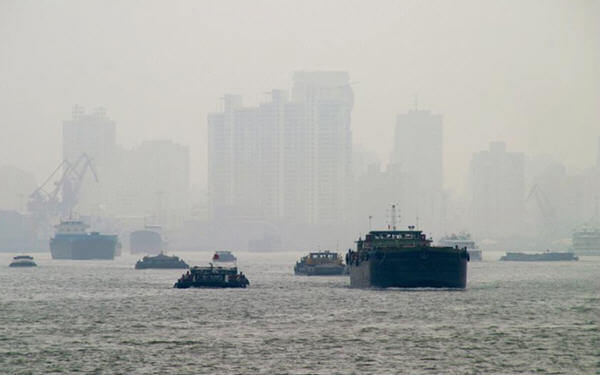
Steelmaking raw materials fell in China on Monday, with the benchmark iron ore contract hitting its lowest for this month so far and coke extending its losses into a fifth session, as demand waned amid restrictions on steel production.
The drop in futures mirrored weakness that has prevailed in the physical market since last week, as steel mills reduced output to comply with anti-smog measures while China’s National People’s Congress (NPC) holds policy meetings in Beijing.
“The air pollution situation in many areas in China is not that good. I believe there will be another round of restrictions on production for the steel industry,” a Shanghai-based trader said.
During the meetings of NPC, China’s parliament, the trader said a lot of construction projects in big cities are usually temporarily stopped, and “this could have some impact on the demand”.
The most-traded iron ore contract on the Dalian Commodity Exchange, with May expiry, fell as much as 3.6 percent to 594.5 yuan ($88.42) a tonne, the lowest since Feb. 27, and stood at 598 yuan by the end of trading at 0700 GMT.
Other raw materials for steel production fell as well, with Dalian coke dropping as much as 3.8 percent to 1,965 yuan, before ending at 1,966.5 yuan. Coking coal slid 2.3 percent to 1,226 yuan.
China’s top steelmaking city of Tangshan has indefinitely extended the highest level of smog alert, in place since March 1, forcing mills to cut output by 40 percent to 70 percent or even stop production.
Wu’an, another major steelmaking city in Hebei province, has stepped up production restrictions on heavy industries, with output reduced by an additional 10 percent in March.
Officials in 28 northern Chinese cities, including in the top steelmaking city of Tangshan, face central government evaluations at the end of March on their performance in curbing air pollution over the past winter.
The most-active construction steel rebar contract on the Shanghai Futures Exchange, also with May expiry, fell 1.6 percent to 3,723 yuan a tonne. Hot rolled coil edged down 0.6 percent to 3,692 yuan.
Hebei, which includes Tangshan, will cut 14 million tonnes of annual steelmaking capacity both this year and next year as it strives to improve air quality, the province’s Communist Party head said last week.
As demand for iron ore remained weak throughout February, supply at Chinese ports continued to rise, reaching more than 147 million tonnes as of March 11, the highest since September, based on data compiled by SteelHome consultancy.
“We continue to pick up a further increase in forward supply along with higher arrivals of iron ore into China,” said Hui Heng Tan, research analyst at Marex Spectron.
“Overall re-stocking efforts are poor as various sintering cuts in China continue to dampen interest and mills continue to de-stock their available material,” Tan said.
Source: Reuters